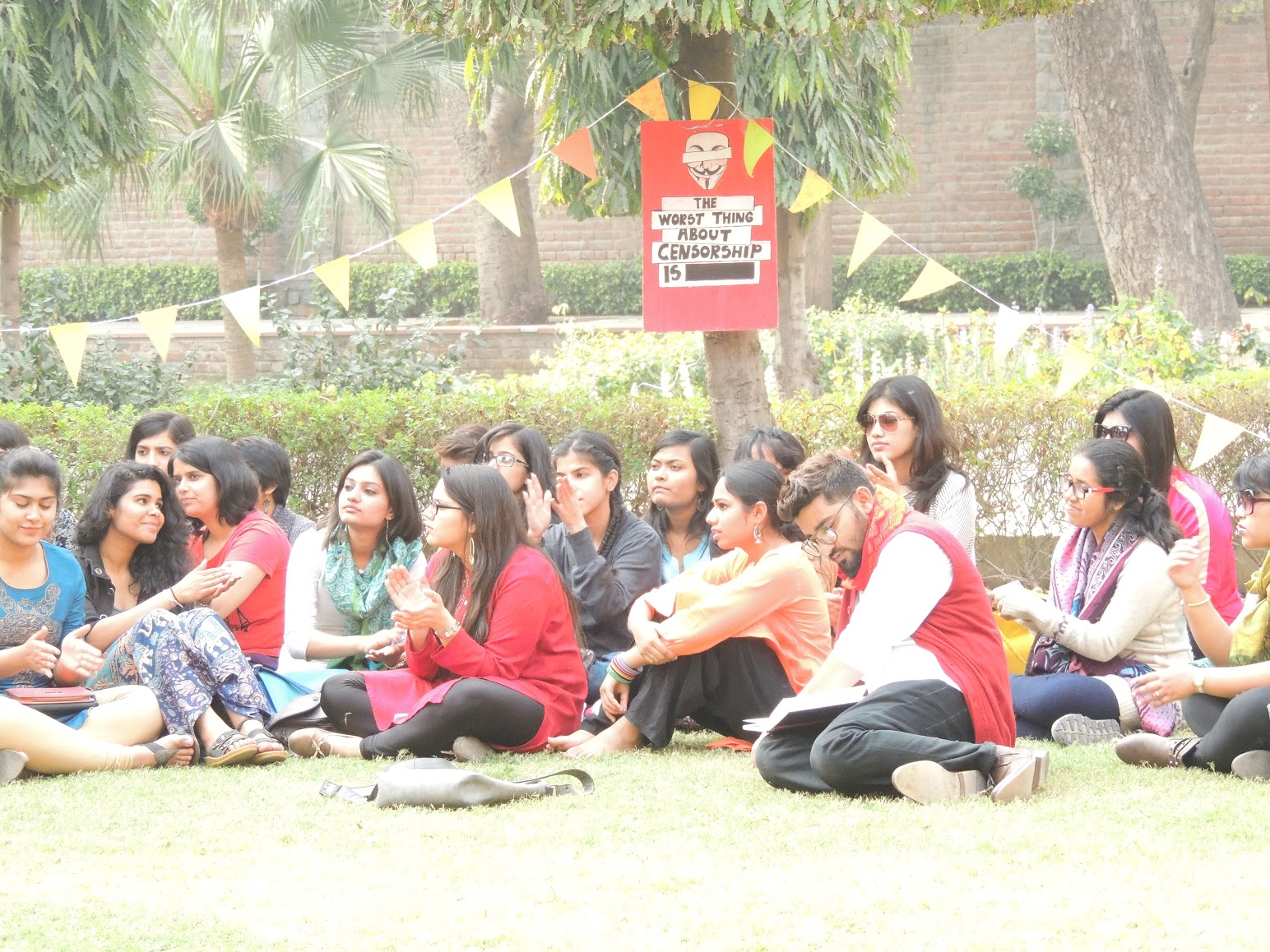
“Ideas are bulletproof”
This dictum appears to be a fitting response to censorship, a testament to the fact that, in spite of all the constraints and all the restrictions, people will never be stopped from thinking and questioning. In celebration of our right to freedom of speech and expression, Miranda House hosted an informal reading session. Thoughts and ideas found free flow at the Kahwa Stop, an event for the articulation of all things “censored”.
Held in the library lawns, a perfectly unceremonious setting for the informal gathering, the purpose of the event was to present the thoughts and views of different people on one platform. The sense of camaraderie was heightened by the ease with which everyone settled down in a semicircle, to listen and to share. What set this apart was the acceptance and respect with which all the contributors were treated.
Professor Kamala Kant Raul, belonging to the History Department of Miranda House, began the session with a poem in Oriya. Melody and music simply added to the vibrancy of the moment, with some participants singing to the cheering of the group. The recital and its reception proved that translation is not always necessary for appreciation of sentiments portrayed by a work of art.
Topics generally considered taboo in most gatherings were freely discussed here. Jagriti, a first year student of English presented a poem about the darker and bloodier underbelly of Kashmir. The poem was beautifully crafted in Hindi with a poignant approach to the valley and its people.
Even poetry that questioned the mainstream notions of sexuality and its expression was presented. Many of the pieces were written by the students themselves. They delved into the dilemmas of people who do not “fit in”, their angst and their search for an identity in a society that deems them contemptible and questions their very existence.
Ramayana, one of the most famous Hindu epics also came up as a focal point of the discussion. Sanchita Jain, a first year student, brought up A. K. Ramanujan’s essay, ” Three hundred Ramayanas” and the controversy surrounding it. She told the story of Sita’s birth, as it is believed in South India, which is at odds with the mainstream version. Dr. Bharati Jagannathan, who teaches History at Miranda House, shared her poem on the myths related to the Ramayana. It began with a simple tale of love, betrayal and the horror that followed for Surpanakha, Ravan’s sister. By the end, goosebumps and vivid sensations were commonplace.
Topics such as these are left, not only completely undiscussed, but often unthought of. The whole purpose of the event was to make everyone think. Tooba Towfiq, one of the main organizers of the event said, “the idea behind it was to bring out, in the open, issues that people would rather brush under the carpet, to make this session truly “uncensored” and empowering by accepting the diverse views expressed through diverse means.”
The event, as it unfolded, revealed the implications of “censorship”, the need for issues and individuals to be uncensored and true meaning of “freedom of expression”, that is, not necessarily the need to accept everyone’s views but the need to respect their right to hold such views.
An idea to be found in a saying, often attributed to Voltaire,
” I do not agree with what you have to say, but I will defend to the death your right to say it.”

Leave a Reply